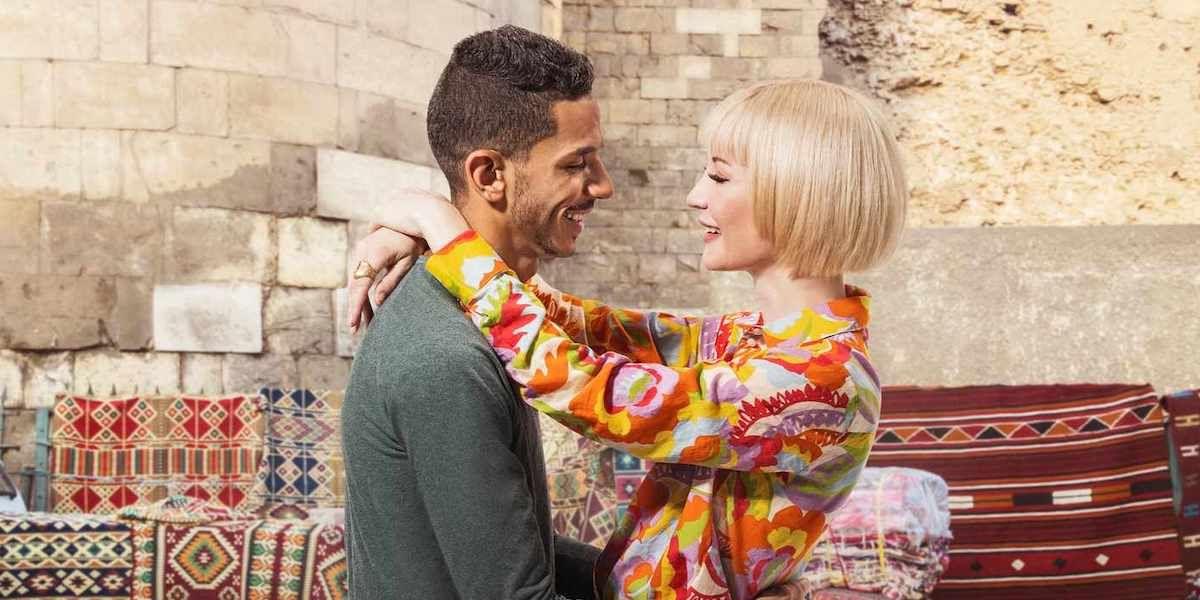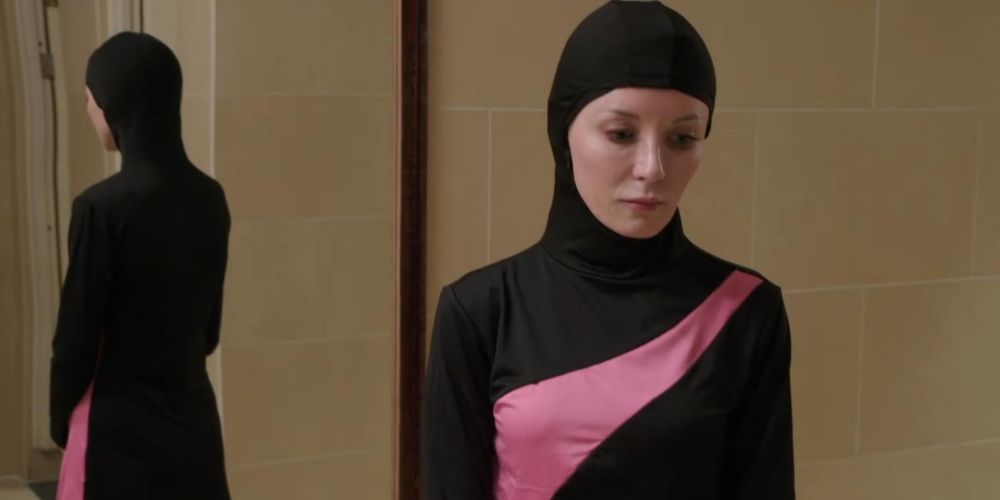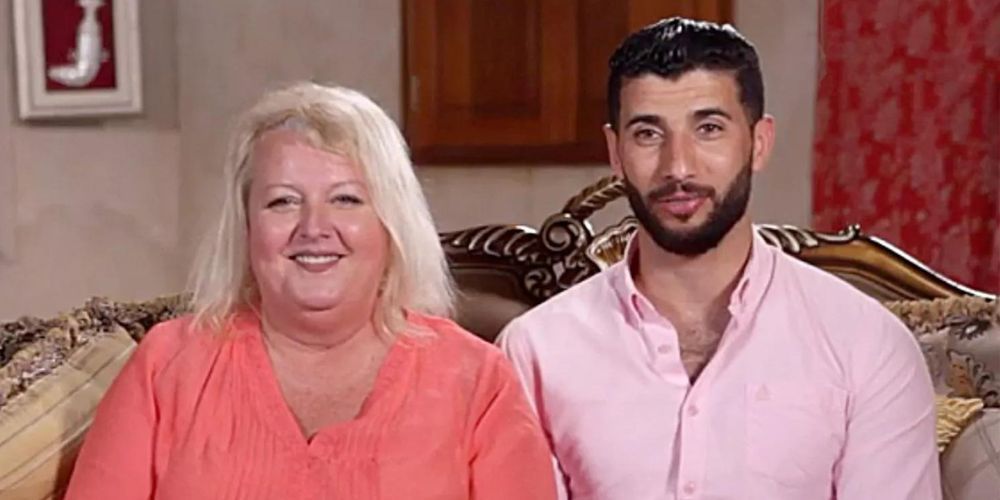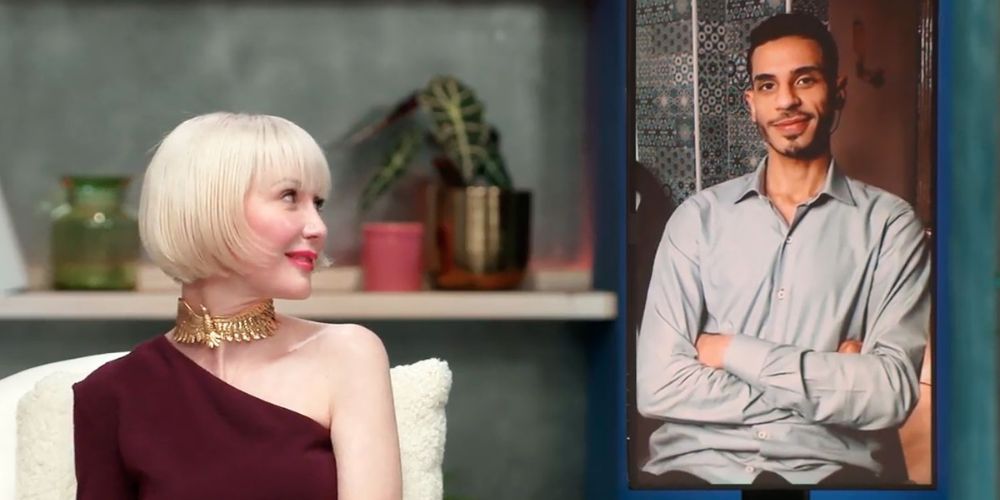90 Day Fiance has become a staple in reality TV viewership. In recent years, there have been many spinoffs in the franchise, the most notable being The Other Way, in which Americans move abroad for love. The drama stems from watching Americans adjust to new societal customs, but when does this adjustment cross the line into entitlement? Couples like Laura and Aladin Jallali and Nicole and Mahmoud Sherbiny have had major problems in their relationships due to issues like this. The storylines tend to revolve around not wanting to acclimate to their new cultural surroundings and familial clashes, leaving viewers wondering why they even went in the first place. Can it really be called love when a person cannot accept an important part of their partner’s life?
- ‘The Real Housewives of New Jersey’ Clip Brings Turbulent Drama to Season 13 Reunion
- ‘The Bachelorette’ Season 20 Premiere Recap: One Suitor Surprises Us All
- Lala Kent Calls Tom Sandoval “Dangerous” in an Explosive Clip for ‘Vanderpump Rules’ Reunion
- ‘Match Me Abroad’: Nathaly’s Date’s Shocking Spiritual Revelation [Exclusive]
- ‘RHOP’ Alum Monique Samuels Files For Divorce Months After Denying Split From Chris Samuels
‘90 Day Fiance’s Primary Conflict
In 2014, the series 90 Day Fiance premiered on TLC as a show that gave insight into the intricacies of the K-1 visa process. Nearly a decade later, it has become a show about love, meme fodder, and occasionally a show about real couples struggling to acclimate to a new climate. The show’s popularity has spurred spinoff after spinoff, the most notable being 90 Day Fiance: The Other Way, which follows Americans moving abroad to meet and be with the people they have chosen to love. And this is a choice that they decide to make, educated or otherwise. 80% of the time, it is an uneducated move, which is what ultimately makes great television that audiences crave to see. Viewers love to watch the drama between the couples as secrets from both sides are revealed in semi-real time.
While the drama is fun for the majority of audiences, one can’t help but wonder about the actual people involved in the show. How can a White American woman move to an Arab-speaking country to love and/or marry a Muslim man devoted to his religion without acknowledging it? And yet, this is a storyline in both the main series and The Other Way. Year after year, series after series, viewers have the unique pleasure of watching this particular conflict unfold. Whether it’s an older woman fetishizing a younger man or a couple of the same age clashing, the main point always comes to the fore: the woman being uncomfortable with their partner’s religious faith and ideology. Inherent cultural aspects of themselves that are often discussed during their relationship but ignored when they are face-to-face.
‘90 Day Fiance’ Showcases Culture Clashes and Unrealistic Expectations
The American viewpoint is that the Islamic lifestyle is strict and that being free from it is a good thing. But there are millions of people who are happy and follow their religion because, at its core, it teaches about being good and kind to one another. As a Christian or non-religious American watching the show, it is easy to be utterly offended by the idea of a man controlling what his partner wears. In fact, it often feels downright abhorrent. White Americans are raised in this country on the ideals of freedom and justice for all, and that, for the most part, includes bodily autonomy. To suggest anything else seems abusive. But not once is this consideration given to the people who are happy living this way. There are plenty of Muslim women who are content with their specific cultural norms. They follow their religious laws because they choose to, many even after being exposed to secular society. These women embrace their culture despite the pressures of American society telling them they are being oppressed. This has been shown on a few occasions in the main series storylines of Avery Mills and Omar Albakour, as well as with Shaeeda Sween and Bilal Hazziez.
Nicole converted to Islam in order to marry Mahmoud, who proposed the same day they met for the first time. He was the only motivating factor for her to do this, which is where the fractures begin to show in their relationship. Their whole storyline deals with the fact that Nicole is moving back to Egypt after not being able to handle the cultural changes the first time she moved there after they got married. She arrives hoping that things will be different this time, but obviously that proves not to be true. The primary issue they have on the surface is Nicole’s desire to wear whatever she wants. Her clothing plays a huge role in her identity, causing her to react strongly to Mahmoud’s desire for her to dress more conservatively. Her compromises aren’t compromises in his eyes, leading to fights. This particular source of drama is an interesting one that highlights an example of American narcissism. This is a woman who chose to move to a predominantly Islamic country not once, but twice, and only to complain twice about having to follow customary dress codes both times. Rather than trying to find creative ways to compromise for the sake of their marriage, she makes half-hearted attempts to appease her husband, which only bother him. For example, there are so many fashionable ways to wear hijab, but for Nicole, all she sees are the limitations to her very being. These feelings are valid, but they also bring into question why she rushed into this marriage without considering this issue. With all of this in mind, one can’t help but wonder what would have happened had they decided to date and get to know each other before getting married. Would they still be together? Based on what was shown to us this season with their ideological differences, probably not.
‘90 Day Fiance’s’ Fetishization of Men Abroad
One could never imagine having the song ‘Gettin’ Jiggy With It’ ‘ ruined by a woman on a reality show. But that is precisely what happened in season one of The Other Way, thanks to the relationship between Laura and Aladin. At the time, Laura was a 51-year-old Canadian woman living in Florida who was in a relationship with 29-year old Aladin. Constantly making references to his looks, Laura was clearly in lust with her fiance. The pairing immediately reminded viewers of another notorious 90 Day Fiance Couple, Angela Deem and Michael Ilesanmi, especially with the constant sexualizing of her future husband. When it came to their scenes in episodes, there was almost always a guarantee of Laura referring to sex with Aladin as “Jiggy Jiggy.” Way to ruin a 2000s classic, Laura. Thanks for that.
Lust in love is fine, but it was clear to those watching that it seemed to be the only thing she cared about. On the flip side, it seemed as if Aladin was using her for money, but one can never be sure, especially with the claims he made later on. Regardless, anyone watching the show would be skeptical of their relationship. Aladin is also a Muslim man who is from Tunisia but was living in Qatar when he and Laura first met in person. While the cultural clashes seemed to be less of a problem for the pair, there is a major issue that arises when Laura tries to introduce a sex toy into their bedroom. Aladin is outraged, and he has a right to be. Having to discuss their bedroom activities in such a public way with a devout Muslim had to have already been agonizing for him. But pulling out a sex toy for the world to see takes it to a whole new level. Laura is upset by his response, and the way the whole scenario is portrayed is clearly meant to make Aladin out to be the bad guy. While he might be a jerk for a multitude of reasons, in this situation, he had a valid point. Laura made no effort to consult him prior to doing this, operating solely on her own desires as well as the desire to show off her sex life with this much younger man. Aladin is clearly being fetishized by Laura, much like most of the relationships similar to theirs on the show. Aladin may have been more lenient than some of his other Muslim counterparts on the show, but this fetishization still stands in direct contrast to his own religious beliefs. It’s disrespectful toward him, something that Laura is too self-centered to see.
‘90 Day Fiance’s’ Islamophobia Problem
Let’s discuss the elephant in the room. Post 9/11 American television is overwhelmingly rife with Islamophobia. The radicals are a small portion of this incredibly diverse religious group, and yet, that is predominantly what is seen in the media. The Muslim faith is a peaceful one, just like its Abrahamic counterparts, Judaism and Christianity. And much like those counterparts, extremism does exist. But because of these instances perpetrated by one subset of people, many Muslim Americans have to deal with hate being spewed at them from every angle. 90 Day Fiance doesn’t necessarily push this hateful narrative, but it doesn’t try to fight against it either. Sure, there are positive examples like Avery, who really believes in and loves her new religion and embraces it fully. There is also Shaeeda, another woman of faith who lives according to it because it is what she believes. Her husband, Bilal, is a jerk, but that has nothing to do with his religious beliefs; he’s just a narcissist. But in looking back at the full series and its spinoffs, these two examples are the only really positive portrayals. Every other relationship shows a woman being “forced” to do things a certain way and behave a certain way. A woman who, usually, sought out the relationship online and did no research whatsoever about the cultures of the partners they claimed to want to spend the rest of their lives with. Men are seen as restrictive and horrible people, and while that is most likely due to their personalities, they are still portrayed as the bad guy because of their religion.
This simply isn’t fair to the millions of Muslim men who are open-minded and kind. A religious belief doesn’t make a person bad; the way the person acts of their own accord is what makes them bad. This can be seen in a multitude of beliefs, not just Islam. 90 Day Fiance has an opportunity to show the variety of this culture, but for now it’s too focused on titillating stories to make this possible. Part two of the Tell All lightly touches on this larger conversation in the conflict between Gabe Paboga and Mahmoud, and it was a good starting point. One can hope that this narrative will shift as the show progresses, but given what was just shown with Nicole and Mahmoud, that won’t be happening any time soon.
Source: https://dominioncinemas.net
Category: REALITY TV













